The Center for Autonomic and Peripheral Nerve Disorders at Beth Israel Deaconess Medical Center offers a unique fellowship in clinical neurophysiology in which trainees gain mastery in the complex and growing field of autonomic disorders and autonomic neurophysiology.
Autonomic impairments occur in many medical conditions as well as central and peripheral neurologic disorders. The fellowship offers extensive clinical training in autonomic disorders, autonomic testing, and autonomic neurophysiology. If interested, the opportunity exists to acquire skills for skin biopsy assessment of sensory and autonomic nerves.
The fellowship was pioneered by Dr. Roy Freeman in 1996 and was one of the first autonomic fellowships in the country. It is the only fellowship in autonomic disorders in Massachusetts. The goal of the program is to provide a thorough and diverse education in autonomic disorders. This is accomplished with experience in evaluation and management of patients with dysfunction of the autonomic nervous system, testing of the autonomic nervous system, educational lectures, reading and conferences. The objectives are to provide a graded educational experience that allows for individual growth for the fellow at a comfortable rate while ensuring mastery of the field.
During training, fellows will learn the evaluation, treatment, and management of patients with:
- Multiple system atrophy
- Parkinson’s disease with dysautonomia
- Pure autonomic failure
- Lewy body disease
- Postural tachycardia syndrome
- Neurally-mediated syncope
- Orthostatic hypotension
- Diabetic and other peripheral and autonomic neuropathies
- Hereditary amyloidosis
- Small fiber neuropathy
These conditions are often unrecognized and may be challenging to treat, resulting in vastly underserved patient populations. The fellowship at BIDMC provides outstanding clinical training, preparing neurologists to treat all these disorders with an interdisciplinary approach.
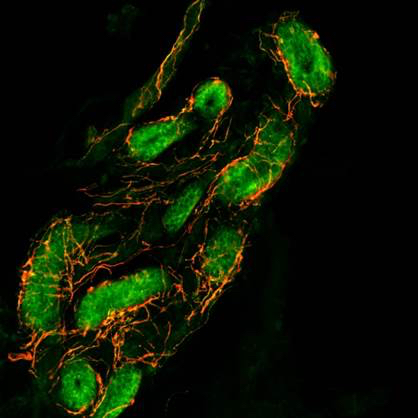
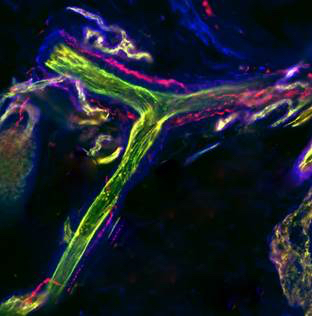
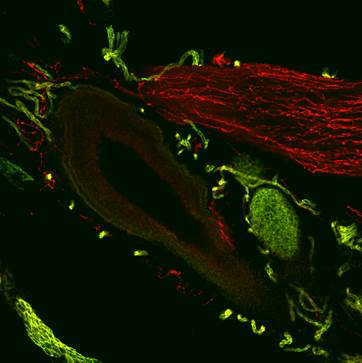
A focus of the program is autonomic testing. The goal for autonomic testing is to provide thorough understanding of the autonomic nervous system neurophysiology as a diagnostic tool. The fellows begin with direct daily tutorials until they are comfortable performing testing under direct supervision. As they gain independence, they will be allowed to test patients on their own under supervision by attending staff. During this time, fellows learn the interpretation of autonomic test results and clinical documentation. All autonomic reports will be reviewed with the attending staff throughout the year.
The elective time is an opportunity for the fellow to engage in scholarly pursuits of their own interest. This may include research, experience in other neurophysiologic disciplines, acquisition of skills in the assessment of intraepidermal sensory and autonomic innervation, and teaching. The goal is to provide additional educational opportunities for fellows to pursue. The objectives are to gain experience in other aspects of academic medicine and provide a diverse opportunity for scholarship.
The fellowship is a 12-month clinical training program with a standard monthly schedule to optimize fellow education opportunities. The fellow will participate in specialized 1/2-day autonomic disorder clinics per week. The fellow will supervise or directly run all autonomic testing. The fellows have no inpatient responsibilities but will participate in inpatient consultations for unusual cases as needed (typically 1-2 cases per month). The fellows have no overnight or weekend responsibilities. Fellows are provided 4 weeks of vacation time during their fellowship and have standard hospital holidays off as well.
The strengths of the program include a varied and diverse population of patients with autonomic disorders. Many unusual cases are seen and provide frequent opportunities for case reports and other descriptive investigation. The laboratory is equipped with state-of-the-art autonomic testing equipment and provides excellent training. The laboratory technicians are very well trained and provide a wonderful resource for the fellows, particularly in the early months of their training. Both Drs. Christopher Gibbons and Roy Freeman are UCNS board certified autonomic disorders specialists and have the time to focus on the training of their fellow.
The fellowship is part of a comprehensive Beth Israel Deaconess Medical Center/ Boston Children’s Hospital Clinical Neurophysiology fellowship program that provides training in all aspects of clinical neurophysiology. Fellows in this program participate in a jointly shared interdisciplinary neurophysiology lecture series. This also helps to establish a collaborative relationship with the future colleagues. Additional training is also available in EMG/NCS, EEG and sleep disorders. The fellowship is heavily clinically based in the outpatient setting but there are numerous opportunities for basic, clinical, and translational research. Fellows are encouraged to pursue these, and faculty mentorship is well established.
The Autonomic and Peripheral Nerve Laboratory at Beth Israel Deaconess Medical Center is a multidisciplinary treatment center for research, testing and care of patients with autonomic disorders. The faculty and staff at the Autonomic and Peripheral Nerve Laboratory focus on:
- Cutting edge discoveries of new autonomic disorders
- Development of biomarkers that improve diagnosis of diseases of the autonomic nervous system
- Bringing new and more effective therapies for patients with autonomic disorders to clinical practice
Through a science first approach, we care for a large group of patients with a range of autonomic disorders using the most up-to-date treatment options. As part of our clinical practice we offer access to a number of ongoing clinical trials that can improve the life of patients with autonomic disorders.
Meet the Autonomic Team
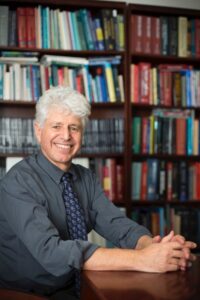
Dr. Roy Freeman
Dr. Roy Freeman is the Director of the Autonomic and Peripheral Nerve Laboratory at Beth Israel Deaconess Medical Center. Dr. Freeman is a Professor of Neurology at Harvard Medical School. Dr. Freeman is former President of the American Autonomic Society, former Chairman of the World Federation of Neurology research group on the autonomic nervous system and former Chair of the Autonomic Section of the American Academy of Neurology. Dr. Freeman’s research and clinical interests are the physiology and pathophysiology of the autonomic nervous system and the small nerve fibers. He has a special interest in orthostatic hypotension and biomarker development in neurodegenerative disease. He is the principal investigator on National Institutes of Health-funded studies on the neurological complications of diabetes, the neurobiology of stress, and biomarker development in alpha-synucleinopathies. He is Editor-in-Chief of Autonomic Neuroscience: Basic and Clinical and on the editorial boards of the Journal of the Peripheral Nervous System, and Clinical Autonomic Research.
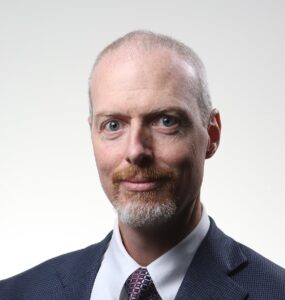
Dr. Christopher Gibbons
Dr. Christopher Gibbons is the Co-Director of the Autonomic and Peripheral Nerve Laboratory and the Director of the Neurocutaneous Skin Biopsy laboratory at Beth Israel Deaconess Medical Center. Dr. Gibbons is an Associate Professor of Neurology at Harvard Medical School. He is a clinician-scientist involved in the investigation, evaluation, and treatment of patients with autonomic and peripheral nerve disorders. Dr. Gibbons has served as Chair of the Clinical Affairs Committee for the American Autonomic Society, and Chair of the Autonomic Section of the American Academy of Neurology, President of the American Autonomic Society and is currently Chair of the International Diabetes Neuropathy Consortium. Dr. Gibbons is the principal investigator on a number grants that focus on disorders of the peripheral and autonomic nervous system.
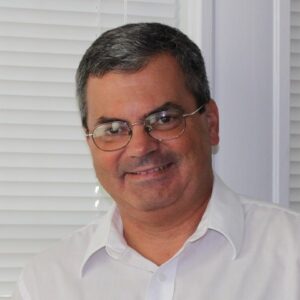
Dr. Istvan Bonyhay
Dr. Istvan Bonyhay is coordinator of Autonomic Testing Services and an Instructor in Neurology at Harvard Medical School. He is a research cardiovascular physiologist and an international expert on the functional interaction between central and peripheral factors of cardiovascular regulation in different physiological and pathological cardiovascular conditions. His research areas of interest include understanding the factors that determine the cardiac vagal baroreflex control in humans. He has expertise in the invasive and non-invasive cardiovascular-autonomic research methods and techniques.
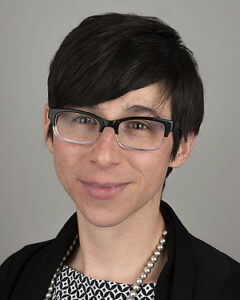
Dr. Alexandra Hovaguimian
Dr. Alexandra Hovaguimian is the chair of the Harvard Medical School Neurology Clerkship Committee and the Neurology Clerkship Director at Beth Israel Deaconess Medical Center. She is an Instructor in Neurology at Harvard Medical School and her clinical work focuses on Autonomic Disorders and Headache Syndromes. This overlap of clinical expertise allows her to provide comprehensive care for patients who struggle with both conditions. Her research focuses on medical education and improving neurologic care for patients worldwide through better physician training. She is the editor in chief of the Journal of the Harvard Medical School Academy and serves as the course director for numerous curricula at Harvard Medical School.
Training opportunities
Eligibility/Application process:
A fellowship position is available for board certified or board eligible adult or pediatric neurologists. The fellowship is part of a 1-year ACGME approved fellowship with Board Certification eligibility in Clinical Neurophysiology. Applicants interested in applying should send a letter of their career goals and objectives as well as a curriculum vitae and three letters of reference to Roy Freeman, MD.
Current Fellows
Paul Beach, MD: Completing his fellowship in 2023 and will join faculty at Emory Medical School
Contact information
Roy Freeman, MD
Center for Autonomic and Peripheral Nerve Disorders
Neurology Department
Beth Israel Deaconess Medical Center
Palmer 111
185 Pilgrim Road
Boston, MA 02215
617-632-8454
617-632-0852
rfreeman@bidmc.harvard.edu
